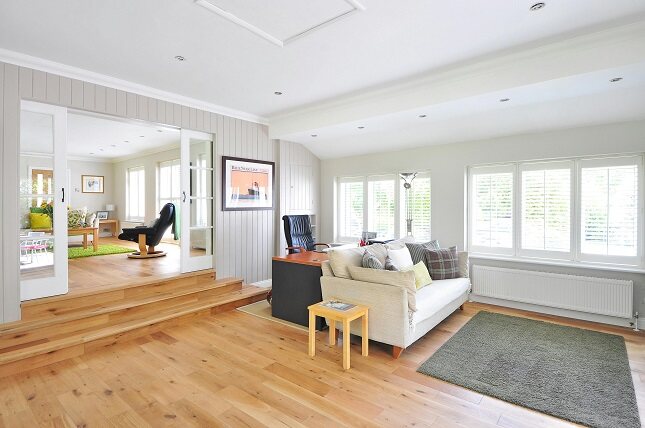In New York City’s competitive real estate landscape, your home is far more than a sanctuary—it’s a financial asset. With soaring property values and buyers who notice smart upgrades, even modest renovations can deliver meaningful returns. Here’s how to invest wisely in small-scale improvements that enhance living comfort and boost resale value—without breaking the bank.
Why Small-Scale Upgrades Pay Off (and Big Ones Don’t)
Data shows that targeted, modest improvements typically yield far higher ROI than full-scale remodels:
- In the 2024 Cost vs. Value Report, exterior upgrades dominate the ROI leaderboard: garage door replacements (194%), steel entry door replacements (188%), and manufactured stone veneer (153%).
- Nationally, minor kitchen remodels—like resurfacing, new fixtures, and simple upgrades—recoup around 96% of their cost, compared to just 50% for mid-range major remodels or 38% for upscale remodels (National Association of Realtors).
- A Wall Street Journal roundup for NYC found replacing a garage door recouped 194%, and a steel entry door, 188%—just by enhancing curb appeal.
Budget-Friendly Renovation Tips with High ROI
1) Kitchen Refreshes
- Cabinet resurfacing and repainting.
- Replace outdated hardware such as pulls, knobs, and faucets.
- Add energy-efficient lighting and small appliances.
- A minor kitchen remodel offers nearly 96% ROI (Zillow, Remodeling Magazine).
2) Bathroom Updates
- Repaint or reglaze tiles and tubs.
- Update vanities, mirrors, and lighting accents.
- Keep layouts intact to avoid high plumbing costs.
- Simple upgrades under $2,000–$5,000, like hardware and tile updates, can deliver strong value—about 59% ROI (Architectural Digest, Brick Underground).
3) Curb Appeal Upgrades
- Paint front doors, trim, or facades.
- Refresh landscaping or add potted greenery.
- Replace garage or entry doors.
- These projects can recoup 150%–200% of their cost (Remodeling Magazine, Wall Street Journal).
4) Energy-Efficient Improvements
- Install smart thermostats or LED lighting.
- Upgrade windows or add insulation where feasible.
- Small upgrades that signal sustainability can sway eco-conscious buyers and deliver long-term utility savings.
NYC-Specific Considerations
- Space/Design Constraints: Solutions must be tailored for compact layouts, common in NYC units.
- Co-op/Condo Board Approval: Always check building regulations before renovation.
- Permit Requirements:
- If the layout isn’t altered, no permit is needed for cosmetic work like painting, resurfacing floors, or installing new cabinets.
- Structural changes, plumbing, or electrical rerouting require permits through the NYC Department of Buildings (DOB) and typically filings by a licensed architect or engineer.
- Use NYC’s DOB NOW: Build portal for permit applications and contractor tracking.
Actionable Takeaways (Checklists)
Before renovating
- Determine scope: cosmetic vs. structural.
- Confirm if –how to get home appraisal for free– options are available (e.g., lender estimates, online tools, or city programs).
- Decide: DIY vs. hire licensed contractor (always check Department of Consumer and Worker Protection licenses).
During planning
- List must-haves vs. nice-to-haves.
- Apply for permits if needed; use DOB systems.
- Get 2–3 contractor quotes.
- Research how to interview a real estate agent to find the right partner if you plan to sell.
Common Mistakes to Avoid
- Over-customization that limits buyer flexibility.
- Skipping permits, which risks fines or failed inspections.
- Choosing unlicensed contractors—always verify credentials.
- Over-investing in high-end renovations that only return 40–50% (such as upscale kitchens or primary suites).
Forward-Looking Conclusion
Small, strategic changes—especially those enhancing curb appeal—can transform your NYC home into a high-performing asset. Choosing renovations with proven ROI, navigating permits wisely, and staying modest in vision will preserve financial upside while enjoying an upgraded home today. Think of improvements not just as upgrades, but as investments in long-term value, resale potential, and peace of mind.









































